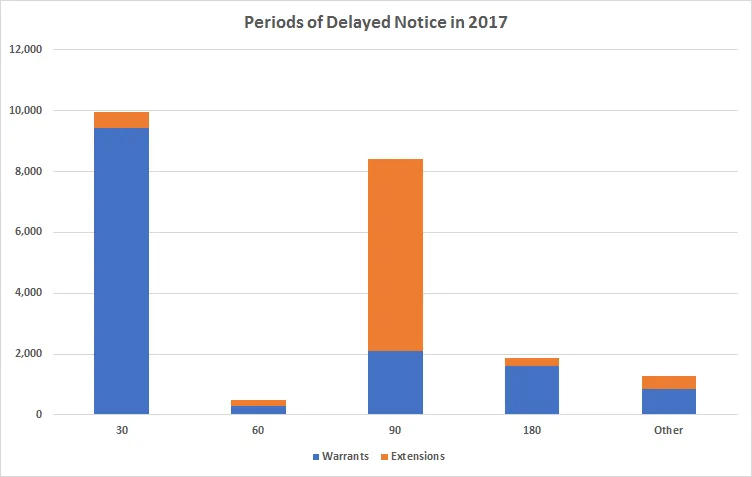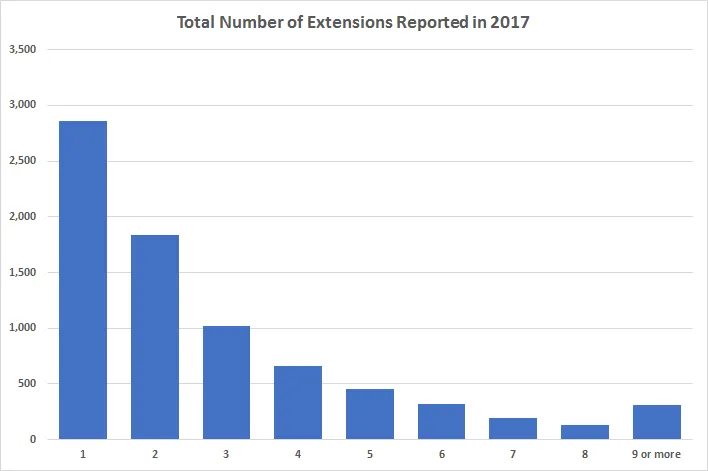This report covers applications for delayed-notice search warrants and extensions that federal courts received between October 1, 2016, and September 30, 2017.
Summary and Analysis
Summary data on requests for delayed-notice search warrants and extensions for fiscal year 2017 appear in Table 1. A total of 14,280 warrant requests were reported. Of these warrant requests, 14,221 were granted, 23 were granted as modified, and 36 were denied. A total of 7,805 requests for extensions were reported; of these requests for extensions, 7,738 were granted, 57 were granted as modified, and 10 were denied.
Judges in 92 federal judicial districts reported actions on requests for delayed-notice search warrants or extensions. Of the requests for warrants and extensions, 1,344 were reported by federal district judges, 20,739 were reported by federal magistrate judges, and 2 were reported by state judges.
Five districts (the Southern District of New York, Eastern District of Michigan, District of Arizona, Northern District of Illinois, and Southern District of California) received 29 percent of all reported applications (see data below).
| District | Total Requests | Warrants | Extensions |
| Southern District of New York | 1,743 | 1,657 | 86 |
| Eastern District of Michigan | 1,520 | 661 | 859 |
| District of Arizona | 1,146 | 504 | 642 |
| Northern District of Illinois | 1,072 | 299 | 773 |
| Southern District of California | 882 | 604 | 278 |
The most frequently reported period of delay was 30 days, which was specified in 9,968 (45 percent) of the applications that were granted. Requests for extensions to delays were for periods ranging from 1 to 92 days, with first extensions being the most frequently requested in 2017.


Table 2 presents data on the offenses specified in reported requests for delayed-notice search warrants and extensions reported for 2017. Drug offenses, which continued to be the crimes cited most often in these requests, were specified in 78 percent of applications. Fraud, the second-most frequently cited offense category, was specified in 6 percent of applications. Extortion/Racketeering, the third-most frequently cited offense category, was specified in 4 percent of applications.
